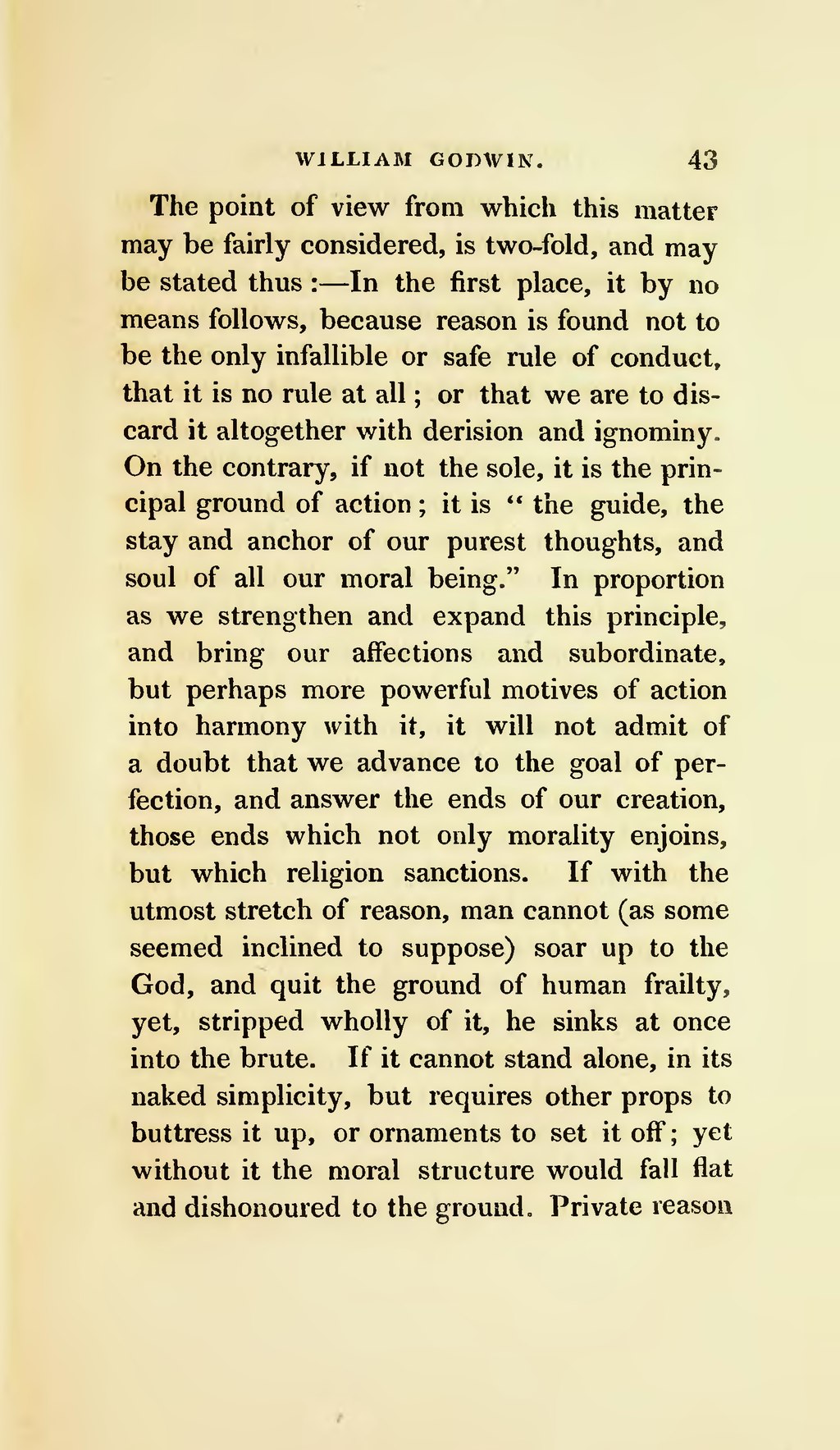The point of view from which this matter may be fairly considered, is two-fold, and may be stated thus:—In the first place, it by no means follows, because reason is found not to be the only infallible or safe rule of conduct, that it is no rule at all; or that we are to discard it altogether with derision and ignominy. On the contrary, if not the sole, it is the principal ground of action; it is "the guide, the stay and anchor of our purest thoughts, and soul of all our moral being." In proportion as we strengthen and expand this principle, and bring our affections and subordinate, but perhaps more powerful motives of action into harmony with it, it will not admit of a doubt that we advance to the goal of perfection, and answer the ends of our creation, those ends which not only morality enjoins, but which religion sanctions. If with the utmost stretch of reason, man cannot (as some seemed inclined to suppose) soar up to the God, and quit the ground of human frailty, yet, stripped wholly of it, he sinks at once into the brute. If it cannot stand alone, in its naked simplicity, but requires other props to buttress it up, or ornaments to set it off; yet without it the moral structure would fall flat and dishonoured to the ground. Private reason
